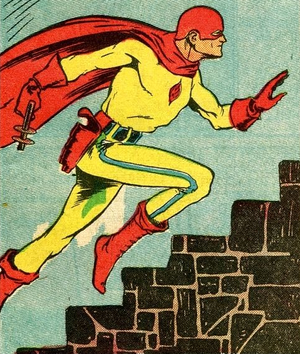 Image via WikipediaHere it is, at least the one I'm working with for my draft:
Image via WikipediaHere it is, at least the one I'm working with for my draft:The presentation of physical difference in comic-book superhero films closely parallels the lived experiences of people with disabilities.
I'd like to make it harder-edged, but I'm starting my draft today, and I think this will work. Dr. Toffee says that we don't need to do an outline unless that's the way we work best, but she also says that we should try to break down our draft into sections and start wherever we think we have the most stuff ready to go. For me, I guess, that would be the section where I go over the disability studies sources (she calls this "a lit survey").
So, in this section, I need to explain the d/s perspective and what they call the "social model" of disability, which has to do with identity and how the way people with physical and mental differences are seen by the larger, non-disabled population. Since almost everything man-made is designed for a pretty narrow range of people's sizes, shapes, and abilities, the disabled have to deal with obstacles that their surroundings present. There is also a cultural model, which is very similar, and I'm not sure yet which one is better for my project. I have a lot more sources on the social model, and that may be the deciding factor.
Incidentally, the superhero picture at the top of this post is ironic, in case you were wondering-- it reminded me of a tee shirt I saw on a website that sells disability-themed message shirts.


